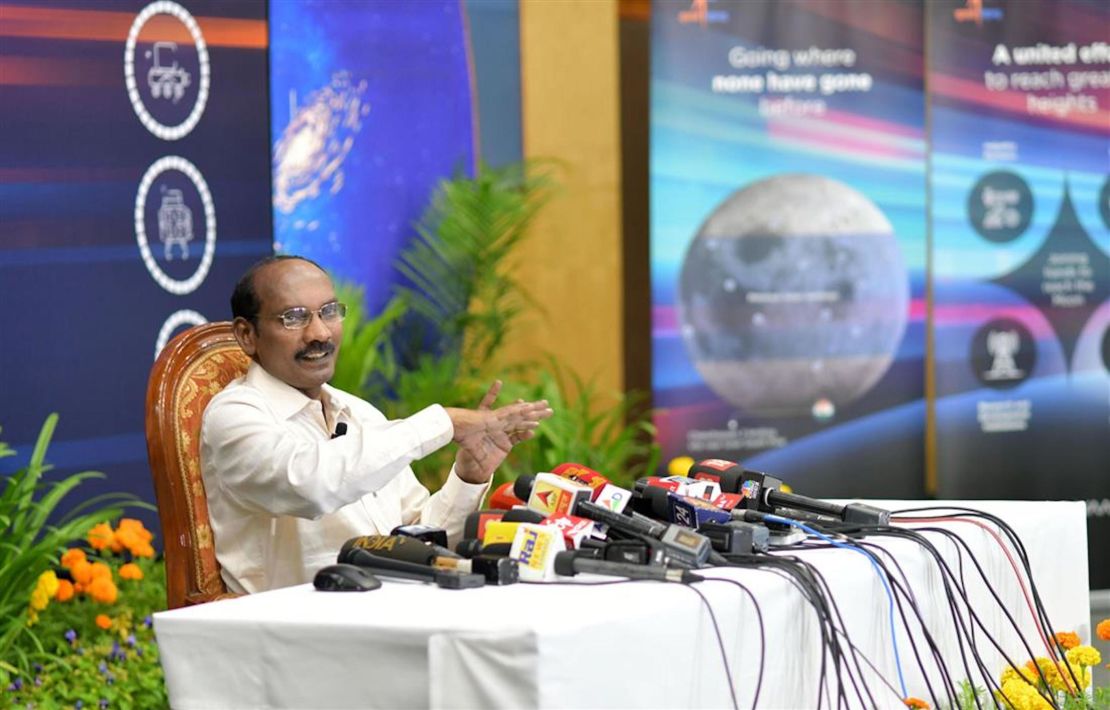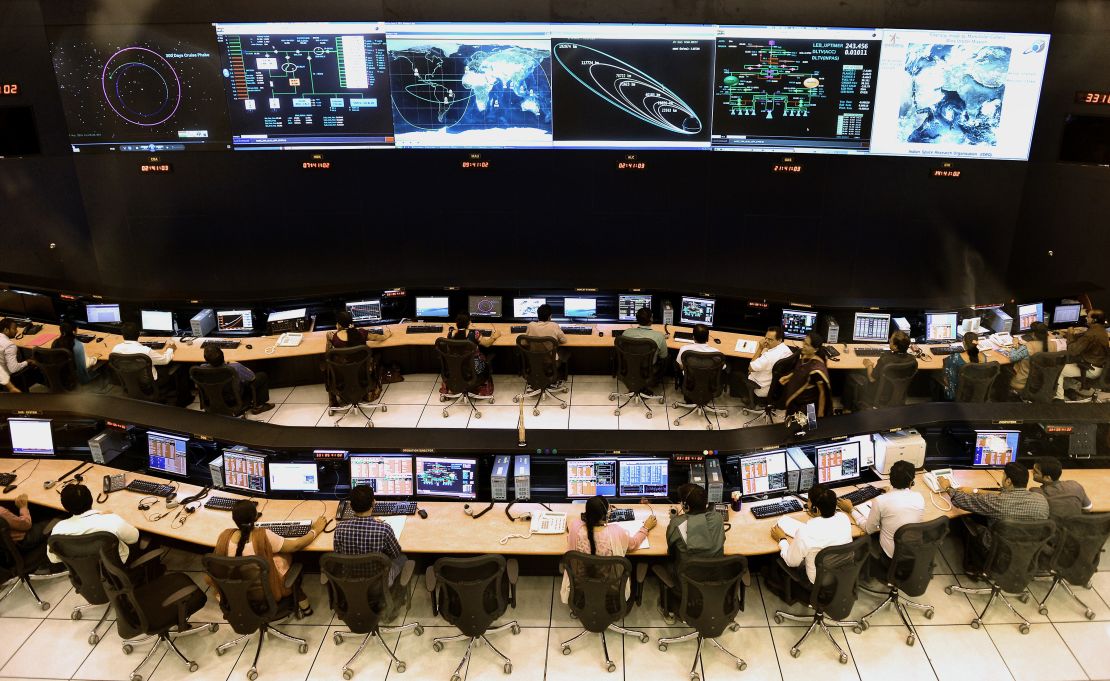India’s space agency says it will make the country’s first landing on the surface of the moon in September this year.
The country’s latest lunar mission, Chandrayaan-2, which means “moon vehicle” in Sanskrit, is to lift off in mid-July.
The mission will make India the fourth country to land a spacecraft on the surface of the moon, adding its name to a long list of recent achievements in space exploration. In the past 10 years, the Indian space agency has launched multiple missions into space to gain a better understanding of Mars and the moon.
“The last 15 minutes to the landing are going to be the most terrifying moments for us,” said Kailasavadivoo Sivan, chairman of the Indian Space Research Organization (ISRO) Wednesday at a news conference.

Chandrayaan-1, India’s maiden lunar mission, was responsible for discovering water molecules on the surface of the moon, which it orbited but did not land on. The Mars Orbiter Mission is orbiting the planet Mars and collecting data as it moves.
The spacecraft will weigh 3.8 tons and carry 13 payloads and will take off from Sriharikota in the southern Indian state of Andhra Pradesh.
The latest mission has three elements – lunar orbiter, lander and rover, all developed by ISRO. The rover enclosed within the entire apparatus will separate from the orbiter and make a soft landing on the surface of the moon. The rover will be collecting samples from the lunar surface for scientific experiments.
“The lander will carry out experiments with instruments to predict or identify lunar seismic activity,” said Sivan.

In 2017, India famously launched a record 104 satellites in one mission while operating on a low-cost budget. Earlier this year, Indian Prime Minister Narendra Modi announced that India had shot down one of its own satellites in what it claimed was an anti-satellite test, making it one of four countries to have achieved that feat.
Modi said that operation, called Mission Shakti – which stands for “power” in Hindi – would defend the country’s interests in space. The Foreign Ministry said that India had “no intention of entering into an arms race in outer space.”
India has also set its sights on a manned mission into space by 2022 at a cost of 100 billion rupees, or $1.4 billion.
“The mission will be capable of carrying three Indian astronauts and will orbit the Earth for seven days,” said Sivan at the announcement of the mission in January.
The United States, China and the former Soviet Union are the only countries to date to have made soft landings on the moon, while only the US has carried out successful manned missions.
An independent space station
Sivan also announced at the press conference Thursday that India was planning to set up an independent space station by 2030.
The details of the ambitious project will be submitted to the Indian government once “Gaganyaan”, the manned space mission, is successfully completed.
“We want our space station to be very small and it’ll will be used to carry out microgravity experiments,” Sivan said, adding it will be “100% indigenous.”
Currently, the only space station available for expedition crews is the International Space Station (ISS) which several countries share.
According to the ISRO chairman, India’s planned space station will weigh 20 tons and can accommodate astronauts for 15 to 20 days.
This story has been updated to correct the destination of the mission India is planning by 2022.
CNN’s Sugam Pokharel contributed to this story.
